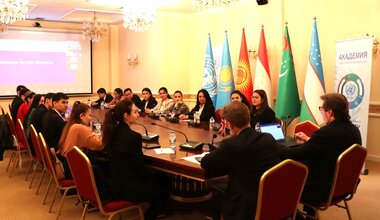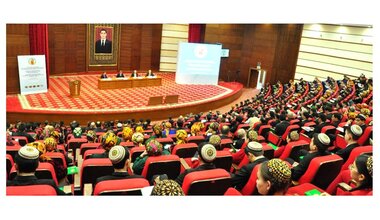SECRETARY-GENERAL’S MESSAGE FOR THE LAUNCH OF THE POLICY BRIEF “COVID-19 IN AN URBAN WORLD”
New York, 28 July 2020
Urban areas are ground zero of the COVID-19 pandemic, with 90 per cent of reported cases.
Cities are bearing the brunt of the crisis – many with strained health systems, inadequate water and sanitation services, and other challenges.
This is especially the case in poorer areas, where the pandemic has exposed deeply rooted inequalities.
But cities are also home to extraordinary solidarity and resilience.
Strangers helping each other, streets cheering in support of essential workers, local businesses donating life-saving supplies.
We have seen the best of the human spirit on display.
As we respond to the pandemic and work towards recovery, we look to our cities as hubs of community, human innovation and ingenuity.
Today, we have an opportunity to reflect and reset how we live, interact and rebuild our cities.
That is why we are launching a “Policy Brief on COVID-19 in the Urban World”.
It offers three key recommendations.
First, we need to ensure that all phases of the pandemic response tackle inequalities and long-term development deficits and safeguard social cohesion.
We must prioritise those who are the most vulnerable in our cities, including guaranteeing safe shelter for all and emergency housing to those without homes.
Access to water and sanitation is also vital.
The inadequate state of public services in many cities requires urgent attention, particularly in informal settlements.
Nearly one-quarter of the world’s urban population lives in slums.
Local governments are already taking action – from prohibiting evictions during the crisis to putting in place new clean water stations in the most vulnerable areas.
Second, we must strengthen the capacities of local governments.
This requires decisive action – and deeper cooperation between local and national authorities.
Stimulus packages and other relief should support tailored responses and boost local government capacity.
Third, we must pursue a green, resilient and inclusive economic recovery.
Many cities have created new bike lanes and pedestrian zones, reclaiming public spaces and improving mobility, safety and air quality.
By focusing on high ecological transformation and job creation, stimulus packages can steer growth towards a low-carbon, resilient pathway and advance the Sustainable Development Goals.
The rapid adoption of telecommuting illustrates how societies can transform seemingly overnight to confront urgent threats.
We must act with the same urgency and resolve to transform cities and address the climate and pollution crises.
Now is the time to rethink and reshape the urban world.
Now is the moment to adapt to the reality of this and future pandemics.
And now is our chance to recover better, by building more resilient, inclusive and sustainable cities.
Thank you.
 UN
UN



